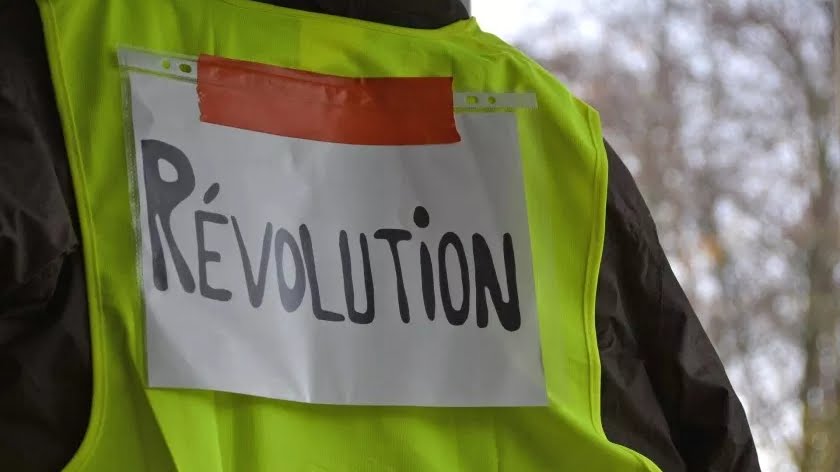How to Start an Unnecessary War
I confess to being mystified by those Americans who lean conservative, like myself, who continue to think that President Donald J. Trump is somehow doing a good job. To be sure, the economy continues to add mostly low paying jobs but claims that the new tax law benefits the middle class are a bit hard to swallow as the elimination of a whole category of deductions for state and local taxes means that I and many other middle-income types will be paying more. And there are whole policy-categories where the Trump record is appalling, to include the federal deficit, trade disputes that are alienating friends and allies, and sheer obstinate idiocy regarding the environment and climate change. Meanwhile, the president’s unrelenting moronic tweets and ridicule of critics have demeaned the office that he holds and made him look like a buffoon.
But Trump was not elected necessarily to create jobs or provide clean water, to make international trade more fair, or to pay attention to the weather. He was elected on two issues. The first was immigration, which energized folks in working class communities who were watching the America they grew up and the jobs that sustained it disappear in a confrontation with an unassimilable wave of mostly Latin American illegal immigrants. Trump promised to put a stop to the flow of immigrants across the border by building a wall if necessary while also catching and deporting illegals currently in the country.
The second issue was foreign policy, and more specifically the termination of the never-ending war legacy that Trump inherited from George W. Bush and Barack Obama, which motivated people like myself to vote for him. He exploited legitimate concerns over “Hillary the Hawk” and promised to disengage from existing conflicts in Afghanistan and Syria while more-or-less pledging not to get involved in further democracy promotion or regime change.
To no one’s surprise, perhaps, after more than two years in office the border wall is not built and the United States is confronting an increased flow of refugees coming from Mexico, inclusive of Central Americans and even Africans who are now into the game of claiming asylum in the U.S. To be sure, much of the problem rests with Congress, which refuses to authorize money for increased border security or pass sensible legislation to change America’s awful immigration system. Indeed, Trump is in fact deporting more illegals, but the deportations cannot keep up with the numbers of new arrivals.
Regarding foreign policy, Trump has not started any new wars though he has twice attacked Syria and he came very close to a serious escalation last Thursday when, for reasons that remain obscure, he stopped a planned attack on Iran at the last minute. And he is still in Syria-Iraq and Afghanistan in spite of somewhat confused assertions that he would be drawing down the number of troops in both theaters. And the absence of new wars is demonstrably not for lack of trying, witness the constant belligerence expressed towards all competitor nations as well as the comic opera coup attempt orchestrated in Venezuela.
Whatever Trump’s better angels might be, if he has any, the appointments of Mike Pompeo as Secretary of State and John Bolton as his National Security Advisor would seem to confirm that the president is disdainful of diplomacy and inclined to threats of military responses to “contain” or change the behavior of countries counted as adversaries. But, at the same time, the president is painfully aware that another indecisive war in the Middle East could cost him re-election, so he is hesitant to pull the trigger.
Most disappointing of all, the relationship with Russia, which Trump pledged to improve, is worse than it was during the Cold War due to a complete failure to engage Prime Minister Vladimir Putin in an adult and serious fashion. But if there is one area of foreign policy where Trump has been unwavering, it is his expressed hatred for Iran, which was hinted at during his presidential campaign when he kept referring to the “terrible” nuclear agreement entered into in 2015 by President Obama with that country. Pundits have blamed his subsequent repudiation of the Joint Comprehensive Plan of Action (JCPOA) on hostility for Obama and all his works, but the real reason more likely has to do with money. Israeli-American casino multi-billionaire Sheldon Adelson pumped tens of millions of dollars into the Republican Party in 2016, effectively buying it for Israel.
Adelson is the most despicable type of Israel-firster, barely concealing his singular loyalty to the Jewish state. He served in the U.S. Army in World War 2 but has said that he is ashamed of that service and would have preferred to be in the Israeli Army. He has also advocated dropping a nuclear weapon on Iran to send a message. Adelson, unfortunately, has Trump’s ear as well as his wallet, the two men reportedly exchanging telephone calls on a weekly basis.
Trump’s argument for the withdrawal from the JCPOA adhered closely to the Adelson/neoconservative line that Iran has been cheating on production of a weapon and would, in any event, be “guaranteed” to develop one as soon as the agreement expires in 2030. Trump also opposed returning Iran’s own money, which had been frozen in U.S. accounts under sanctions, claiming that it would be a “windfall” used to buy and upgrade weapons. The new president insisted that he would be able to negotiate a “better deal,” but the White House walked away from the agreement even though nearly every high official at the Pentagon and State Department argued that it was beneficial to U.S. interests to continue. At the time of the withdrawal and still to this day, Iran was and is subject to an invasive inspection regime and has been reported to be fully compliant with the terms of the JCPOA.
The JCPOA withdrawal chiefly benefited Israel, and it is just possible that it actually was planned there, as a naïve Trump was consistently outmaneuvered and manipulated by Prime Minister Benjamin Netanyahu and Adelson. Once out of the nuclear agreement, the march towards a real, shooting war began and has been deliberately escalated ever since, particularly after Mike Pompeo and John Bolton became major players in the cabinet.
No one in the White House has ever made the effort to explain exactly how Iran threatens the United States, apart from repeated offhand comments about having to protect Israel or “send a message.” Urged on by Israel and Saudi Arabia, the United States has been playing the unwitting fool in its willingness to take the lead in denying Iran any legitimate role in the Middle East region. After pulling out of the JCPOA, the U.S. re-instituted punitive sanctions and then punished other countries for dealing with Iran or abiding by the JCPOA agreement. The Administration, including the president, boasted how the severe sanctions would cause the Iranian economy to collapse. Trump has also several times threatened to completely destroy Iran. As the punishment being meted out has increased, the Administration has also heated up its own rhetoric, claiming that it was Iran and not the U.S. that had become more aggressive and threatening.
Last month, the White House initiated a complete blockade on Iranian energy exports, also threatening secondary sanctions on anyone seeking to ignore the restrictions being unilaterally declared and coming out of Washington. The Iranian Revolutionary Guard Corps (IRGC) was also declared to be a foreign terrorist organization, leading to still more sanctions and the dispatch of an aircraft carrier and strategic bombers to the Middle East followed by still more troops last week to defend against Iranian “hostile behavior.”
The Administration has accused Iran of several recent attacks on tankers, but the lack of evidence has even made it difficult for media friends and many Iran-hating congressmen to believe the claims. But make no mistake, the situation is approaching the boiling point with Pompeo and Bolton reportedly driving the process behind the back of a largely disengaged Trump. Meanwhile, the Iranian shoot-down of a U.S. drone on Wednesday produced even more calls for a military response. The New York Times’ leading Zionist columnist Bret Stephens called for an attack by U.S. forces to sink the Iranian navy. Senator Tom Cotton, a Trump ally, urged a “retaliatory military strike,” while Pompeo warned that any killing of an American soldier or sailor in Syria or Iraq will be blamed on Iran and a U.S. military response will follow.
Those calling for action almost got what they wanted last week, but perhaps the most dangerous moves being made by the Administration relate to how the United States goes to war. The War Powers Act of 1973, passed after the fraudulent Gulf of Tonkin incident of 1964 which led to escalation in Vietnam, permits the president to respond with armed force against an imminent threat or an actual act of war by an adversary. But he must inform congress within 48 hours, detailing why he acted as he did, and between 60 and 90 days afterwards he must remove the troops or obtain a declaration of war by Congress to continue the conflict.
Secretary of State Mike Pompeo, obviously representing the Administration viewpoint, is now claiming that the War Powers Act is not relevant as Iran is covered under the Authorization to Use Military Force (AUMF). Pompeo sought to convince a group of congressmen that the AUMF, which contains a blanket approval to use force against al-Qaeda and associated groups, also includes Iran because it has connections to al-Qaeda. This is an argument that has been made in the past, but the congressmen and even the media covering the story were not convinced by it.
If the White House has its way in this instance, it will be able to start wars anywhere at any time just by citing the AUMF no matter how implausible the argument being made is. And worse still would follow even if Congress then does the right thing and impeaches Trump. That would make Mike Pence president.
And, of course, no one in the White House has any idea what comes next after the bombs begin to fall.
By Philip M. Giraldi, Ph.D.,
Source: The Unz Review







